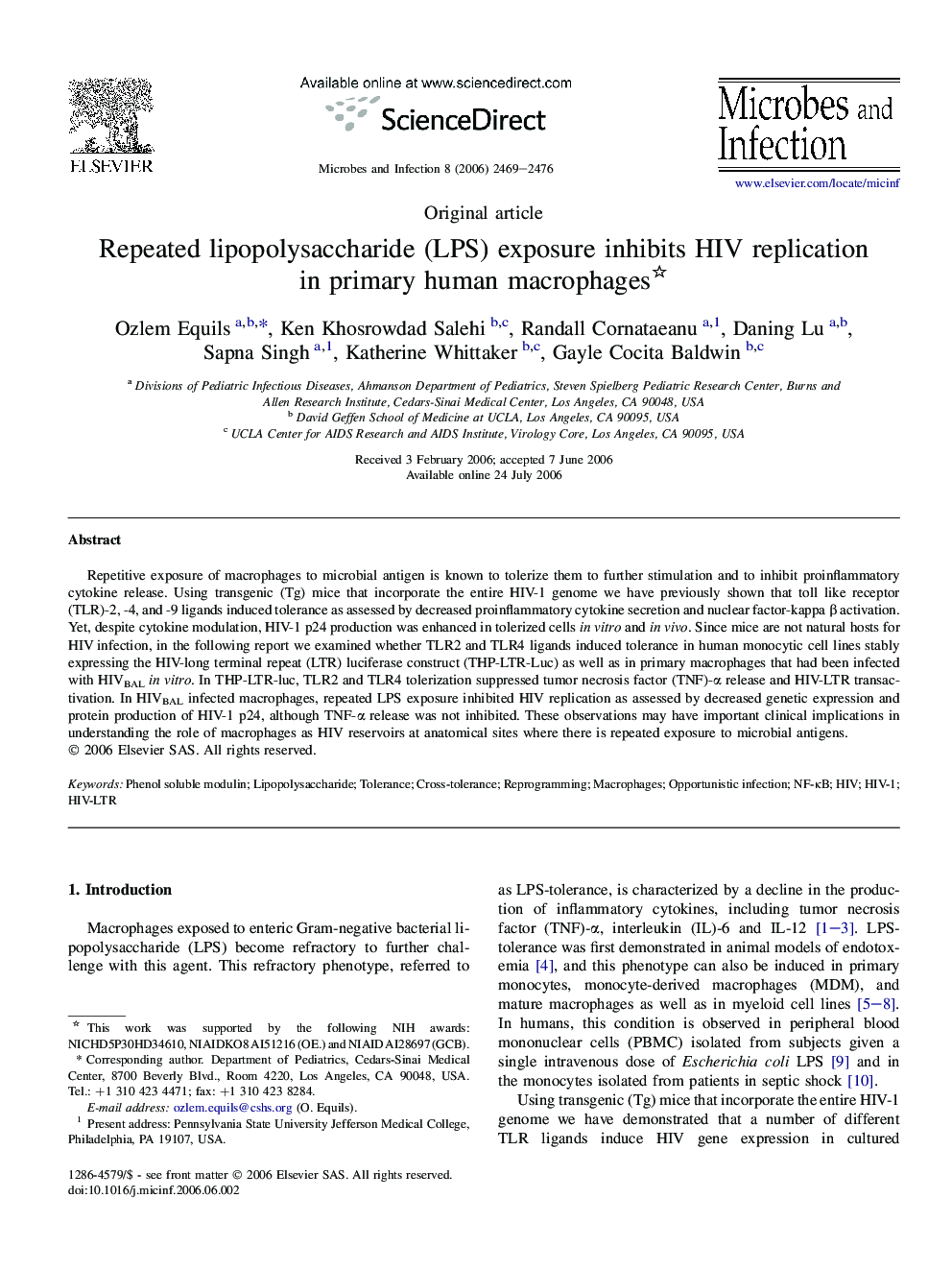| Article ID | Journal | Published Year | Pages | File Type |
|---|---|---|---|---|
| 3415822 | Microbes and Infection | 2006 | 8 Pages |
Repetitive exposure of macrophages to microbial antigen is known to tolerize them to further stimulation and to inhibit proinflammatory cytokine release. Using transgenic (Tg) mice that incorporate the entire HIV-1 genome we have previously shown that toll like receptor (TLR)-2, -4, and -9 ligands induced tolerance as assessed by decreased proinflammatory cytokine secretion and nuclear factor-kappa β activation. Yet, despite cytokine modulation, HIV-1 p24 production was enhanced in tolerized cells in vitro and in vivo. Since mice are not natural hosts for HIV infection, in the following report we examined whether TLR2 and TLR4 ligands induced tolerance in human monocytic cell lines stably expressing the HIV-long terminal repeat (LTR) luciferase construct (THP-LTR-Luc) as well as in primary macrophages that had been infected with HIVBALin vitro. In THP-LTR-luc, TLR2 and TLR4 tolerization suppressed tumor necrosis factor (TNF)-α release and HIV-LTR transactivation. In HIVBAL infected macrophages, repeated LPS exposure inhibited HIV replication as assessed by decreased genetic expression and protein production of HIV-1 p24, although TNF-α release was not inhibited. These observations may have important clinical implications in understanding the role of macrophages as HIV reservoirs at anatomical sites where there is repeated exposure to microbial antigens.
